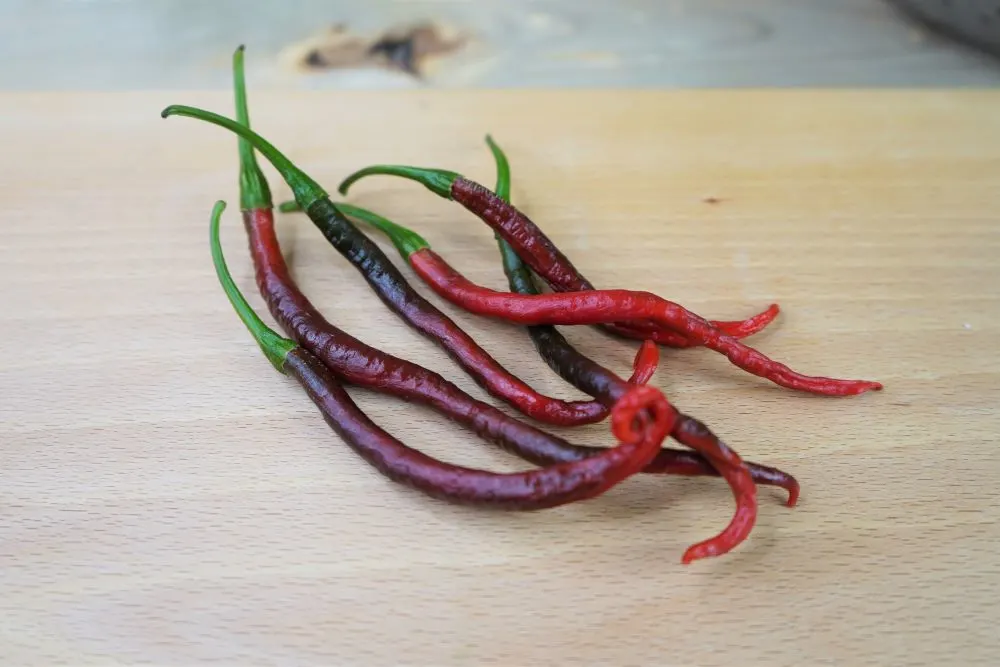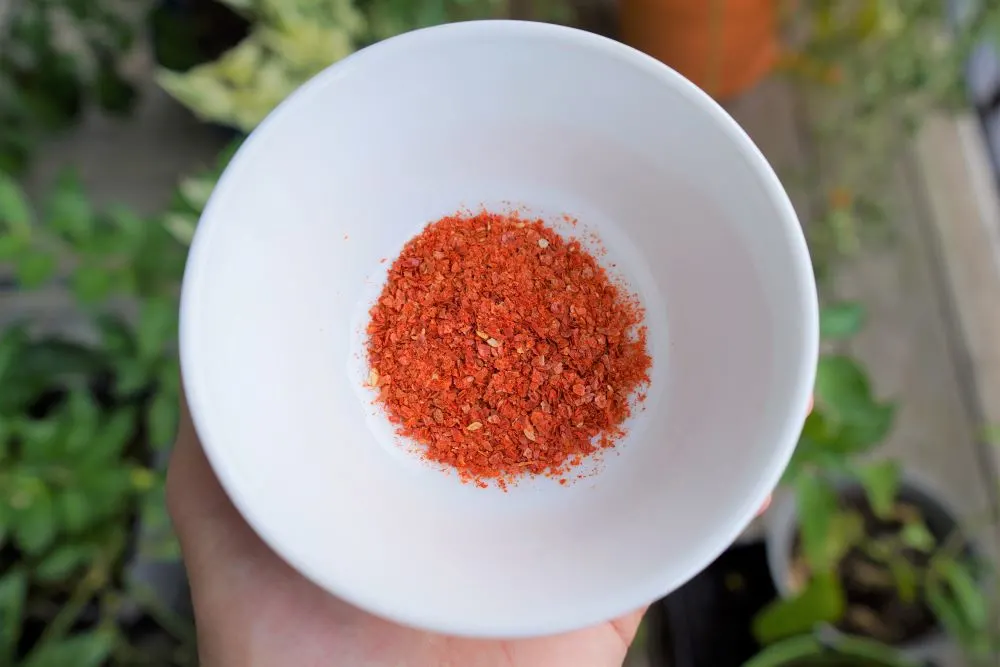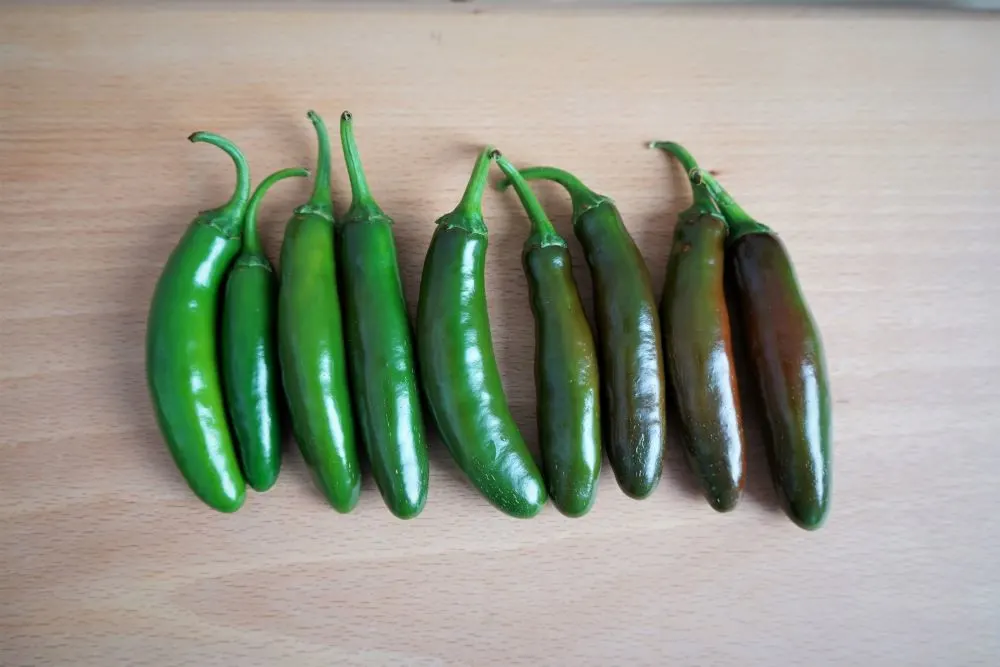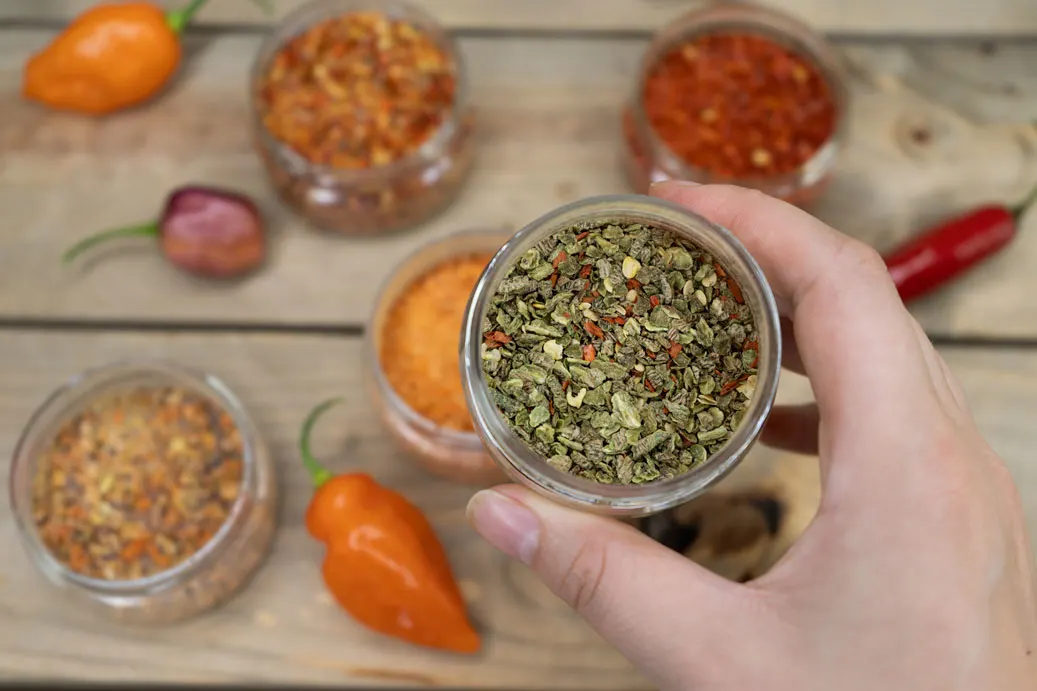The chile de arbol is an incredibly popular pepper variety from Mexico well known for its use in a powdered form. While it is incredibly common in Mexican cuisine, it is only gradually making its way across the world.
If you are looking for a chile de arbol substitute, we’ve got you covered. Thankfully, this chili variety is very similar to other, more easily accessible types in the US. In this article, we’ll share 9 great alternatives for chile de arbol in the kitchen.

1. Cayenne Pepper
Since chile de arbol is often used in a dried and powdered form, the easiest alternative to find is likely cayenne pepper powder. This spice used to add heat to food is the perfect substitute for chile de arbol.

Not only do cayenne peppers have a similar shape and color, but they are right around the same heat level as the chile de arbol. With a Scoville rating around 50,000 SHUs, cayennes will add around the same heat level to your cooking.
Cayennes are also extremely productive plants that are easy to grow in a container. Learn more about growing hot peppers pots here.
2. Serrano Peppers
Serrano chilis are an excellent alternative to chile de arbol. While they are usually sold while green, serrano peppers will actually ripen to a bright red, just like arbols.
Serrano peppers are slightly less spicy, but they have a delicious flavor and a relatively thin wall when compared to jalapenos. You can dry serranos yourself with a dehydrator or in the oven, or use them fresh.

Learn more about serrano peppers.
3. Jalapenos
If none of the first two peppers are available, try looking for other fresh hot peppers at the market. Jalapenos will work, but they are less spicy and have a thicker flesh than chile de arbol peppers.
Chiles Japones are a similar pepper variety that is commonly sold in a whole dried form. You may also be able to find other dried pepper types, especially during peak harvest season.
Remember, chile de arbol is usually used to simply add heat and maybe a touch of red color. The flavor is not extremely pronounced, so any thin-walled hot pepper will work fine as an alternative.
4. Homemade Pepper Powder
If you have fresh peppers, but you need powder, try making your own! the process takes time, but it is very easy. The goal is to remove all the moisture from your fresh peppers, and then pulverize them into flakes or fine powder.

Tip: Always wear respiratory protection when grinding hot peppers. You may get capsaicin-laced powder in your lungs, causing major irritation!
Learn how to dehydrate peppers to make powder here.
5. Paprika
If you want the mild flavor and color of dried chile de arbol, but no heat, try using paprika as a substitute. Paprika is essentially just dehydrated red bell peppers, ground into a powder.
This spice is tasty and reminiscent of chile de arbol, but won’t cause your food to be fiery hot. We recommend using half paprika and half hot pepper powder to tone down the heat.
If you want to add some smoky flavor to your food, try smoked paprika. Instead of just dehydrating the red pepper, they are smoked to add a powerful, rich flavor to the paprika – highly recommended!
6. Chili Flakes
In some countries, chili flakes are far more common than powders. Italian chili flakes are common for use on pizza and pasta dishes, but can be used as an alternative to chile de arbol peppers if needed.
One drawbacks of chili flakes is the large size. They are larger pieces of peppers, which may cause an unwanted texture in your food. Since the peppers used are very thin, the skin can be tough.
Tip: Try grinding chili flakes further in your food processor or spice grinder for a finer powder. Wear a mask!
7. Sweet Bell Peppers
If you need fresh peppers, but don’t want the heat of chile de arbol or cayennes, try using sweet peppers instead. Bell peppers are large and thick, so the texture will differ, but the flavor should work with whatever you may be cooking.
Aside from bell peppers, there are many other pepper varieties that have no heat. Some popular types include mini sweet, cubanelle, poblano (mild heat), sweet banana and jimmy nardello peppers.
8. Gochugaru
These pepper flakes are known as a popular Korean spicy dried chili pepper. They are used extensively in Korean cuisine, but will work well as an alternative to chile de arbol. However, gochugaru may not be very easy to find in some parts of the world.
9. Mirasol (Guajillo) Chili
If you can find dried guajillo peppers, they will work as an alternative to chile de arbols too. Mirasol chilis are less hot than chile de arbols, but have a distinctive flavor. They are popular in Mexico and should be easy to find at the market.
I hope this article helped you find the perfect chile de arbol substitute for your meal. If you want to have more than you know what to do with, try growing them yourself, especially if you live in a warm climate!


Ann
Sunday 3rd of July 2022
I love heat so my go-to is Thai chile which I always have on hand...fresh, frozen, or dried. "Mo' hotta, mo' betta!" :D